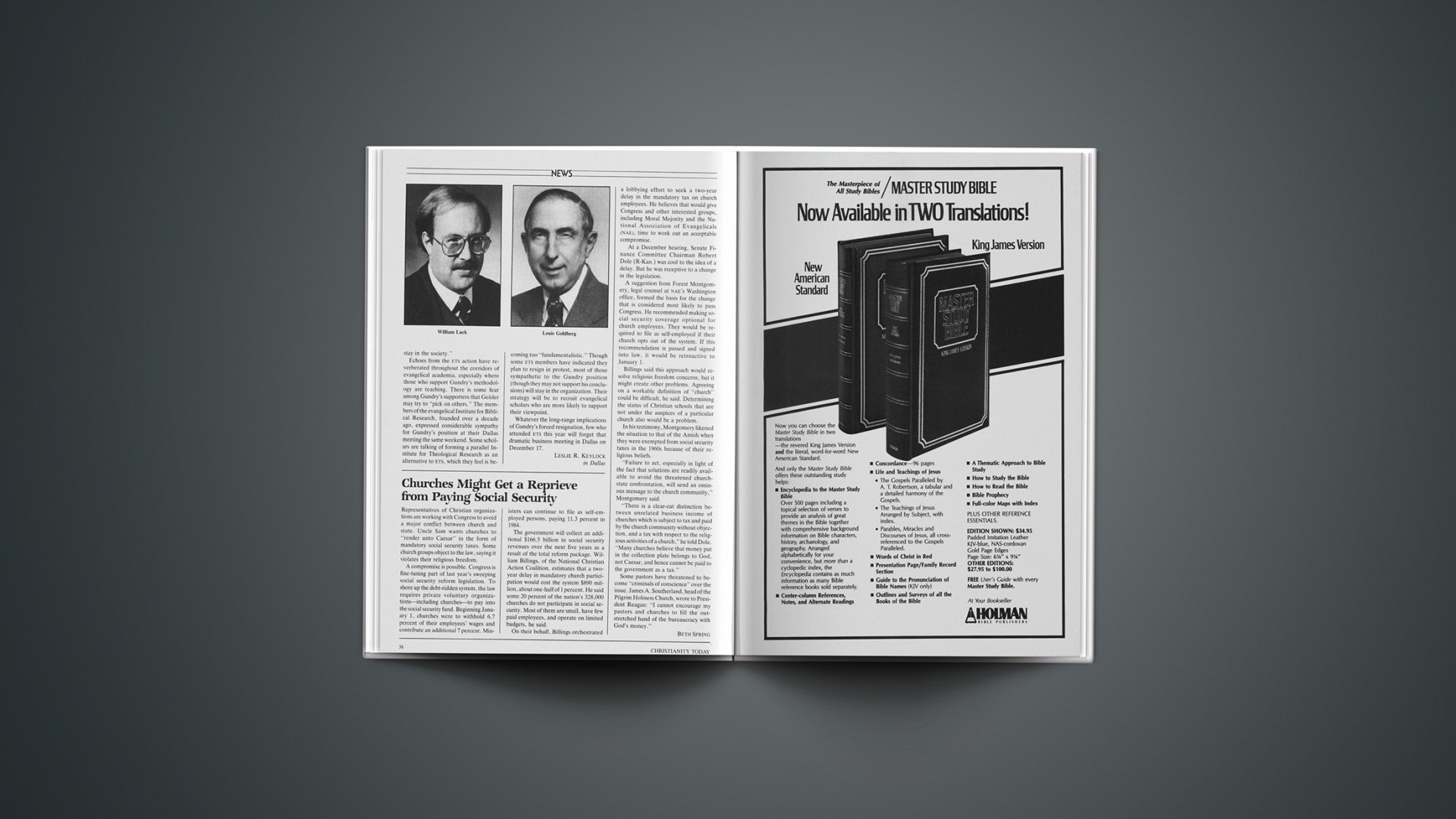Representatives of Christian organizations are working with Congress to avoid a major conflict between church and state. Uncle Sam wants churches to “render unto Caesar” in the form of mandatory social security taxes. Some church groups object to the law, saying it violates their religious freedom.
A compromise is possible. Congress is fine-tuning part of last year’s sweeping social security reform legislation. To shore up the debt-ridden system, the law requires private voluntary organizations—including churches—to pay into the social security fund. Beginning January 1, churches were to withhold 6.7 percent of their employees’ wages and contribute an additional 7 percent. Ministers can continue to file as self-employed persons, paying 11.3 percent in 1984.
The government will collect an additional $166.5 billion in social security revenues over the next five years as a result of the total reform package. William Billings, of the National Christian Action Coalition, estimates that a two-year delay in mandatory church participation would cost the system $890 million, about one-half of 1 percent. He said some 20 percent of the nation’s 328,000 churches do not participate in social security. Most of them are small, have few paid employees, and operate on limited budgets, he said.
On their behalf, Billings orchestrated a lobbying effort to seek a two-year delay in the mandatory tax on church employees. He believes that would give Congress and other interested groups, including Moral Majority and the National Association of Evangelicals (NAE), time to work out an acceptable compromise.
At a December hearing, Senate Finance Committee Chairman Robert Dole (R-Kan.) was cool to the idea of a delay. But he was receptive to a change in the legislation.
A suggestion from Forest Montgomery, legal counsel at NAE’s Washington office, formed the basis for the change that is considered most likely to pass Congress. He recommended making social security coverage optional for church employees. They would be required to file as self-employed if their church opts out of the system. If this recommendation is passed and signed into law, it would be retroactive to January 1.
Billings said this approach would resolve religious freedom concerns, but it might create other problems. Agreeing on a workable definition of “church” could be difficult, he said. Determining the status of Christian schools that are not under the auspices of a particular church also would be a problem.
In his testimony, Montgomery likened the situation to that of the Amish when they were exempted from social security taxes in the 1960s because of their religious beliefs.
“Failure to act, especially in light of the fact that solutions are readily available to avoid the threatened church-state confrontation, will send an ominous message to the church community,” Montgomery said.
“There is a clear-cut distinction between unrelated business income of churches which is subject to tax and paid by the church community without objection, and a tax with respect to the religious activities of a church,” he told Dole. “Many churches believe that money put in the collection plate belongs to God, not Caesar, and hence cannot be paid to the government as a tax.”
Some pastors have threatened to become “criminals of conscience” over the issue. James A. Southerland, head of the Pilgrim Holiness Church, wrote to President Reagan: “I cannot encourage my pastors and churches to fill the outstretched hand of the bureaucracy with God’s money.”










